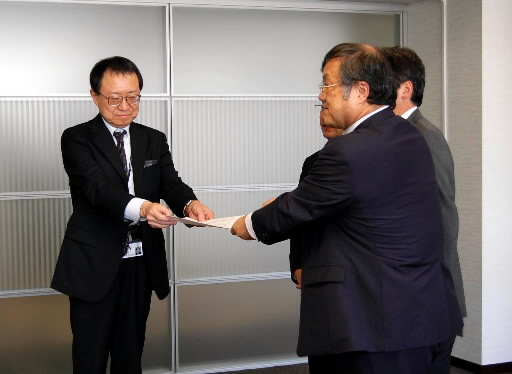Nuclear weapons can be eliminated: Chapter 6, Part 6
Jul. 30, 2009
Chapter 6: Instability in Northeast Asia
Part 6: No first use
by Junichiro Hayashi and Yumi Kanazaki, Staff Writers
Role of nuclear weapons limited by declaration
Since North Korea conducted nuclear tests, support for “nuclearism” has grown in South Korea. Those who hold this view believe that South Korea need not arm itself with nuclear weapons right away but should rather establish its own technology through civilian uses such as the enrichment of uranium and the reprocessing of nuclear waste.
Located on the outskirts of Seoul, the Sejong Institute is a private organization that conducts research into security policy and other issues. Song Dae-sung, 64, its president, emphasized his point. “Guns against guns, nuclear weapons against nuclear weapons,” he said. “Enhancing nuclear technology will lead to deterrence.”
Others counter that that will needlessly provoke North Korea. “If the development of nuclear technology has future military implications, it will worsen international relations,” said Kim Taewoo, 59, vice president of the Korea Institute for Defense Analyses. “The most realistic approach is to proceed with nuclear disarmament while making nuclear weapons more difficult to use.”
Rather than nuclearism, Mr. Kim has in mind a policy of no first use. This was one of the issues that was debated at the regional meeting of the International Commission on Nuclear Non-proliferation and Disarmament (ICNND) in Beijing in May.
Under this policy, the use of nuclear weapons is limited to counterattacks against nuclear attacks. By declaring a policy of no first use, the role of nuclear weapons is limited and their possession becomes less meaningful. Among the nuclear nations, China has already declared a policy of no first use. In a speech in Prague earlier this year, U.S. President Barack Obama also said, “To put an end to Cold War thinking, we will reduce the role of nuclear weapons in our national security strategy.”
The government of Japan, however, has opposed this approach. On July 7, Shingo Fukuyama, secretary general of the Japan Congress Against A- and H-Bombs (Gensuikin), and five others visited the offices of the Foreign Ministry and submitted a formal request addressed to Prime Minister Taro Aso and Toshio Sano, director general of the ministry’s Disarmament, Non-Proliferation and Science Department. The document called for the government to ask the U.S. to declare a policy of no first use as the minimal immediate step toward the abolition of nuclear weapons.
The two sides found themselves at odds, however. Because of its concern about China’s military build-up and the development of biological and chemical weapons by North Korea, the Foreign Ministry claims that such an effort would have a deleterious effect on U.S. deterrence and would lead to instability in Northeast Asia.
Gensuikin was motivated to submit its request in July because the ICNND will hold its final meeting in Hiroshima in October and compile a report in which it makes recommendations for the abolition of nuclear weapons. Whether or not to include a declaration of no first use was one focus of their discussions. Akira Kawasaki, 40, executive committee member of Peace Boat, who serves as an adviser to the ICNND, expressed alarm, saying, “Japan is putting the brakes on the trend toward nuclear disarmament,” he said.
In 2001 the National Institute for Research Advancement (NIRA), a semi-governmental think tank in Tokyo, released a report that included a review of the nuclear umbrella. In the report the organization recommended that Japan consider welcoming a pledge by the U.S. and China to adhere to a policy of no first use.
Mitsuro Donowaki, 77, who compiled the report as chairman of the working group at that time and is now president of the Japan Center for Conflict Prevention, has served as an ambassador for nuclear disarmament. Based on his diplomatic experience he said, “From the standpoint of the discussion of a realistic security policy, Japan can be adequately protected by the ‘conventional weapons umbrella’ of the U.S.”
(Originally published on July 16, 2009)
To comment on this article, please click the link below. Comments will be moderated and posted in a timely fashion. Comments may also appear in the Chugoku Shimbun newspaper.








